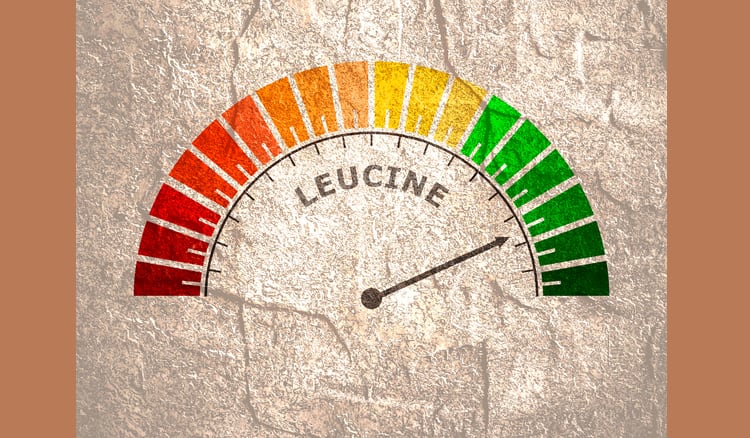In addition, vitamin D supplementation was recommended for seniors who were insufficient or deficient in the vitamin.
More attention is paid to muscle health and sarcopenia – the loss of muscles – among seniors in recent years.
The 14 consensus statements were established by a special interest group (SIG) within the Asian Working Group for Sarcopenia.
The SIG comprised of seven experts across Asia and one from Australia, who then developed the consensus based on existing scientific evidence.
Together with the evidence cited, the consensus statements were published in the Journal of Cachexia, Sarcopenia, and Muscle.
The consensus statements can be grouped into six categories, covering 1) malnutrition and screening, 2) diet and dietary patterns, 3) nutritional supplementation, 4) lifestyle interventions, 5) outcomes and assessments, and 6) impacts of COVID-19.
Supplementation guidelines
Under the section on nutritional supplementation, the SIG recommended a daily protein intake of at least 1g/kg body weight for healthy older adults and at least 1.2g/kg body weight for those with sarcopenia and/or frailty.
While intake of protein primarily by diet is preferred, they have also recommended protein supplementation when that was not possible.
In this case, high quality protein, amino acids such as leucine and l-carnitine, or oral nutritional supplement (ONS) containing beta-hydroxy-beta-methylbutyrate (HMB) may be considered.
On the other hand, it also recommended for the measuring of serum 25-hydroxy vitamin D in those who were at risk of malnutrition or sarcopenia.
In which case, oral vitamin D supplementation of between 800 and 1000 IU/day may be beneficial for those who are vitamin D insufficient.
Higher doses may be required for those who are deficient in the vitamin.
The SIG also added recommended the pairing of nutritional supplementation with an exercise regimen to manage or prevent sarcopenia.
The consensus aims to provide a practical framework for addressing muscle health in the community, with the overall aim of encouraging and facilitating broader access to equitable care for this target population.
“Although physical activity and a healthy diet/good nutrition are core strategies for the management and prevention of sarcopenia, the topic of nutrition was not well addressed.
“Therefore, this expert consensus aimed to address that gap and to set out a series of clear statements regarding clinical decision-making around nutrition in muscle health that will be specifically applicable to community-dwelling older adults living in Asia (aged ≥60 years) and contribute to the global view of care for people with sarcopenia,” said the SIG.
Process
To develop the consensus, a systematic literature review was conducted, focusing on scientific papers published from 2016 to 2021 and those that focused on older Asian adults.
The papers included randomised controlled trials (RCTs), meta-analyses, systematic reviews, longitudinal observational studies, cross-sectional studies, and/or retrospective studies.
Based on the studies’ evidence, the SIG developed a set of consensus statements – and two rounds of voting were conducted to choose and/or rephrase the statements.
At first, there were 15 draft statements accompanied with a supporting text providing the rationale for each statement. These statements were then sent out to the SIG members for anonymous online voting.
There must be over 80 per cent agreement for a statement to achieve consensus.
Eventually, consensus for 14 statements were reached, with each receiving more than 92.5 per cent agreement.
Malnutrition and sarcopenia
During the literature review, the researchers observed a link between malnutrition and sarcopenia.
They cited a study in Singapore which concluded that being at nutritional risk or malnourished was significantly associated with two to three times increased risk of sarcopenia.
Another Malaysia found that the mid-upper arm circumference, calf circumference, and skeletal muscle mass index were all significantly associated with malnutrition risk.
Lower skeletal muscle mass was also found to independently increase the odds of being at risk for malnutrition in multivariate analysis.
“There is also a growing body of evidence that nutritional status may be a modifiable risk factor for the development of muscle health issues, including sarcopenia. Therefore, identifying individuals at risk of malnutrition, to provide early intervention, is an important public health strategy for preventing the development of sarcopenia and related complications, such as frailty.
“Although older adults with obesity are also at risk for muscle health problems, the SIG members consider this a topic worthy of separate consideration at another forum. This consensus focuses on undernutrition as an underlying cause of sarcopenia, and therefore malnutrition as a starting point for issues pertaining to muscle health,” said the SIG.
Source: Journal of Cachexia, Sarcopenia, and Muscle
Roles of nutrition in muscle health of community-dwelling older adults: evidence-based expert consensus from Asian Working Group for Sarcopenia
https://doi.org/10.1002/jcsm.12981
Authors: Liang-Kung Chen


